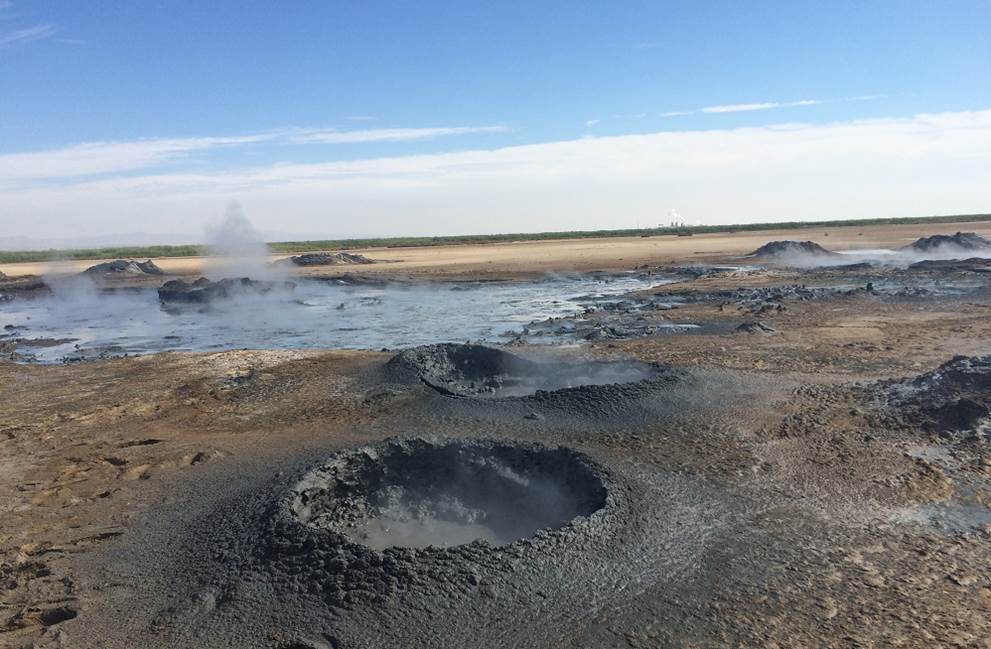
US President Joe Biden announced a “major investment in domestic production of key minerals and materials” this week, including efforts to strengthen supply chains of lithium and other materials used in batteries.
Speaking at a virtual round table on Tuesday (22 February) attended by White House National Climate Advisor Gina McCarthy, representatives of various private industry stakeholders and California’s Governor Gavin Newsom, the president said the US must establish and strengthen domestic supply chains.
Enjoy 12 months of exclusive analysis
- Regular insight and analysis of the industry’s biggest developments
- In-depth interviews with the industry’s leading figures
- Annual digital subscription to the PV Tech Power journal
- Discounts on Solar Media’s portfolio of events, in-person and virtual
While Newsom noted his appreciation that Biden was able to attend the event without cancelling, given some of the likely demands on his time.
“Oh, are you kidding me? We don’t have much going on, you know, other than Russia and Ukraine and — anyway,” Biden joked.
However, it was China that dominated Biden’s opening remarks, as he noted that close to 100% of minerals used in the US for powering phones, computers, household appliances, electric vehicles and batteries, solar panels, wind turbines and so much more are imported from China.
In particular, China has cornered the market on many of the materials used in clean energy technologies, he said, which is why Biden has committed to building a clean energy supply chain bearing the ‘Made in America’ stamp.
The event came just over a year since the president ordered an urgent review of supply chain dynamics which led to the president issuing a priority list of actions that needed to be taken.
It is also a couple of weeks since the Department of Energy (DoE) committed to US$3 billion of loan-based funding for upstream battery supply chain activities. Specialist renewable energy industry lawyer Adam Walters of Stoel Rives told Energy-Storage.news that the loans were well-intentioned but would not address the main elements of China’s competitive dominance, including cheap labour costs.
Initiatives directly pertaining to batteries announced at this week’s event included a commercial viability test for sustainable lithium extraction from geothermal brine in California’s Imperial Valley, aka Lithium Valley.
Berkshire Hathaway Energy Renewables (BHE Renewables) would take the lead in breaking ground on a demonstration facility. This could result in a multi-billion dollar investment over five years, the White House said.
BHE Renewables CEO and president Alicia Knapp said that the company is working “to secure the most abundant source of lithium in the United States, using the world’s most environmentally friendly technology, and providing economic and employment benefits in one of the most disadvantaged communities — counties in the country.”
It has already been operating geothermal plants in Imperial Valley for four decades, and that means the company pumps up thousands of gallons of lithium-rich brine to the surface every minute. However, the technology to extract and process the lithium from the brine does not exist, Knapp said, meaning it is simply pumped “right back down into the ground”.
A demonstration plant will come online this April, extracting lithium from brine, supported by a US$6 million California Energy Commission (CEC) grant, while a further DoE grant of US$14.9 million will fund a second phase of the project: converting recovered lithium into battery-grade lithium compounds.
If those are successful, construction of BHE Renewables’ first plant would begin in 2024 to come online in 2026.
Silvia Paz, chair of the Lithium Valley Commission, said the hope was that lithium extraction could become a more environmentally friendly process while bringing new economic stimulus to one of California’s most disadvantaged regions.
The announcement comes shortly after Imperial County local authorities voted in favour of the Lithium Valley Economic Opportunity Investment Plan, which vowed to make the best of the region’s 1,500MW to 3,000MW of new geothermal energy potential and 15 million metric tonnes of lithium.
The plant would be in the Imperial Valley Salton Sea region, an inland salt lake area. Energy-Storage.news has reported on efforts to establish a lithium extraction pilot plant from 40MW of geothermal fields led by developer Controlled Thermal Resources (CTR).
CTR has said its pilot plant could be up and running by next year and produce around 35,000 tonnes of lithium carbonate equivalent by 2025. CTR’s consortium also got a CEC grant for just under US$4.5 million and investors include Bill Gates’ VC group Breakthrough Energy Ventures.
Among other supply chain activities discussed at the round table event were a proposed pilot between battery recycling company Redwood Materials and major automakers Ford and Volvo to extract materials including lithium, graphite, cobalt and nickel from used batteries, a US$35 million heavy rare earth supply chain grant for industrial magnet manufacturing and more.






